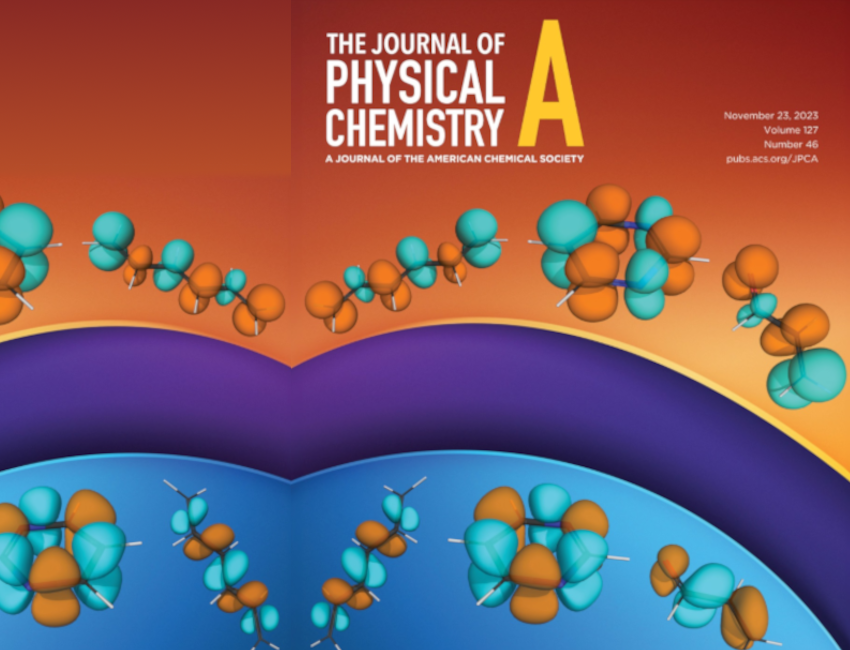An article published on October 18, 2023, authored by Professor Rene Spada, from PG-FIS, and visiting professor Lachlan Belcher (US), was highlighted on the cover of The Journal of Physical Chemistry A, a journal published by the American Chemical Society (ACS ). The study presents a new theoretical diagnosis to quantify the ionic character of molecules represented by multiconfigurational wave functions. This study is the result of a collaboration between researchers working at ITA, prof. Rene Spada and visiting professor Lachlan Belcher (USA), with researchers from other national and international institutions, such as the Federal University of Paraíba, Argonne National Laboratory (USA), Texas Tech University (USA) and Loughborough University (UK).
The multiconfigurational self-consistent field method (MCSCF) is a cornerstone for obtaining electronic structure properties of atoms and molecules, especially when the calculation involves excited electronic states. These calculations are required for several applications in sensors and photon emitters. In this context, the MCSCF method is used either to generate results for dynamics calculations or as a starting point for more accurate methods, such as multi-reference configuration interaction (MRCI). However, if used with minimal active spaces (in order to avoid computational effort), this method can obtain significant errors for ionic excited state energies (>2eV).
With the aim of investigating this problem, the article discusses the nature of the difference between ionic and covalent electronic states through their transition densities. The fact that the transition densities are located on the atoms if the state has an ionic character (shown at the top, orange background) and on the bonds if the state has a covalent character (lower part, blue background) was explored. To quantify this information, a diagnosis (Q<sub>a<\sub><sup>t<\sup>) was developed to measure the ionic character of a state so that scientists can identify results that may need refinement. This diagnosis was used to predict the performance of the MCSCF method on a set of 11 molecules, showing that covalent states are generally well described, while ionic states require further treatment by more sophisticated methods.
This research was developed in the context of the ITA Physics Postgraduate Program, and belongs to one of the research lines in the Atomic and Molecular Physics area (FIS-A). ITA opens registrations for its postgraduate studies every semester, with the PG-FIS being an option for those interested in developing a master's or doctorate in the field of Physics.

